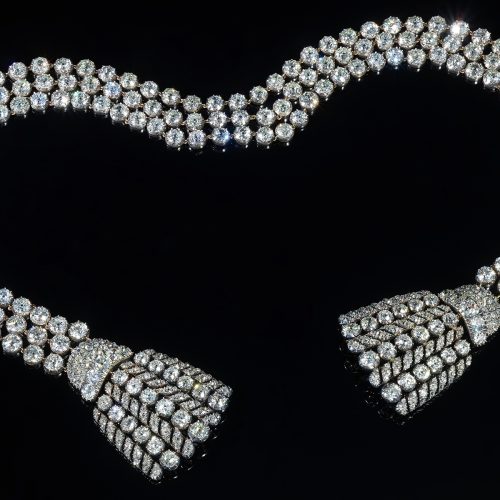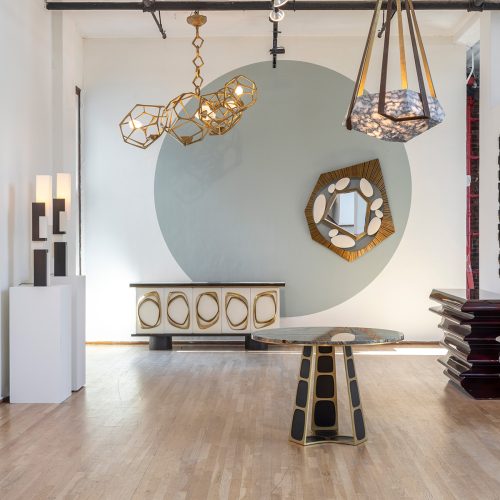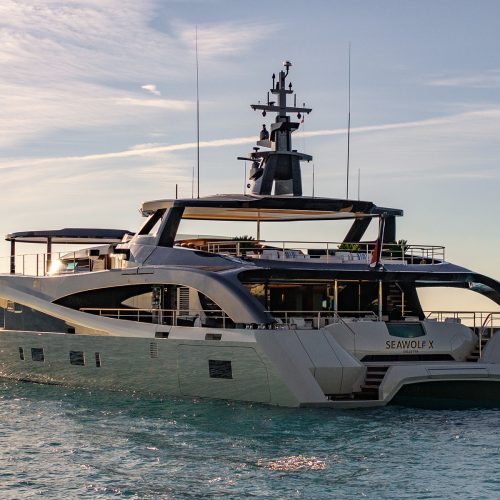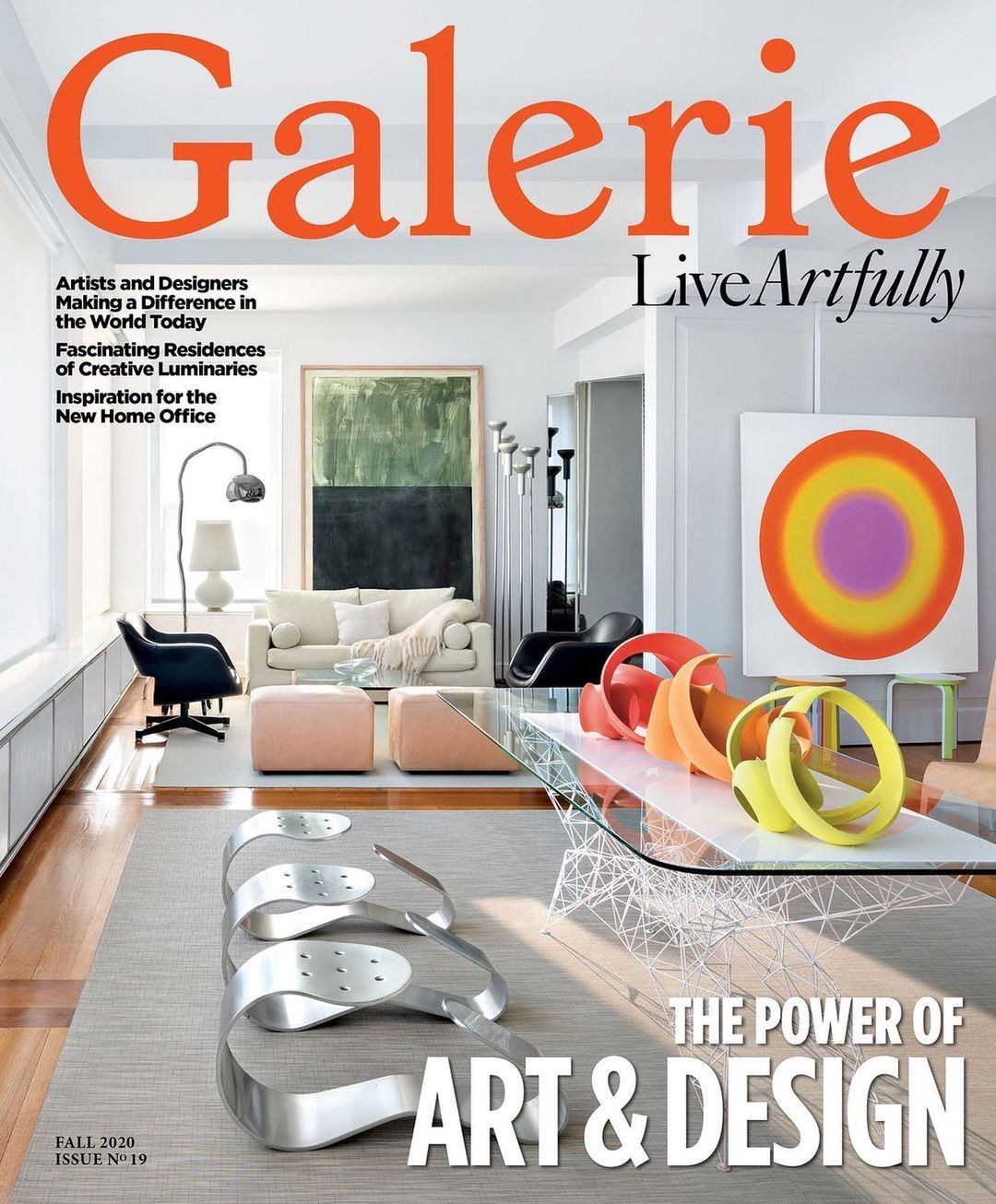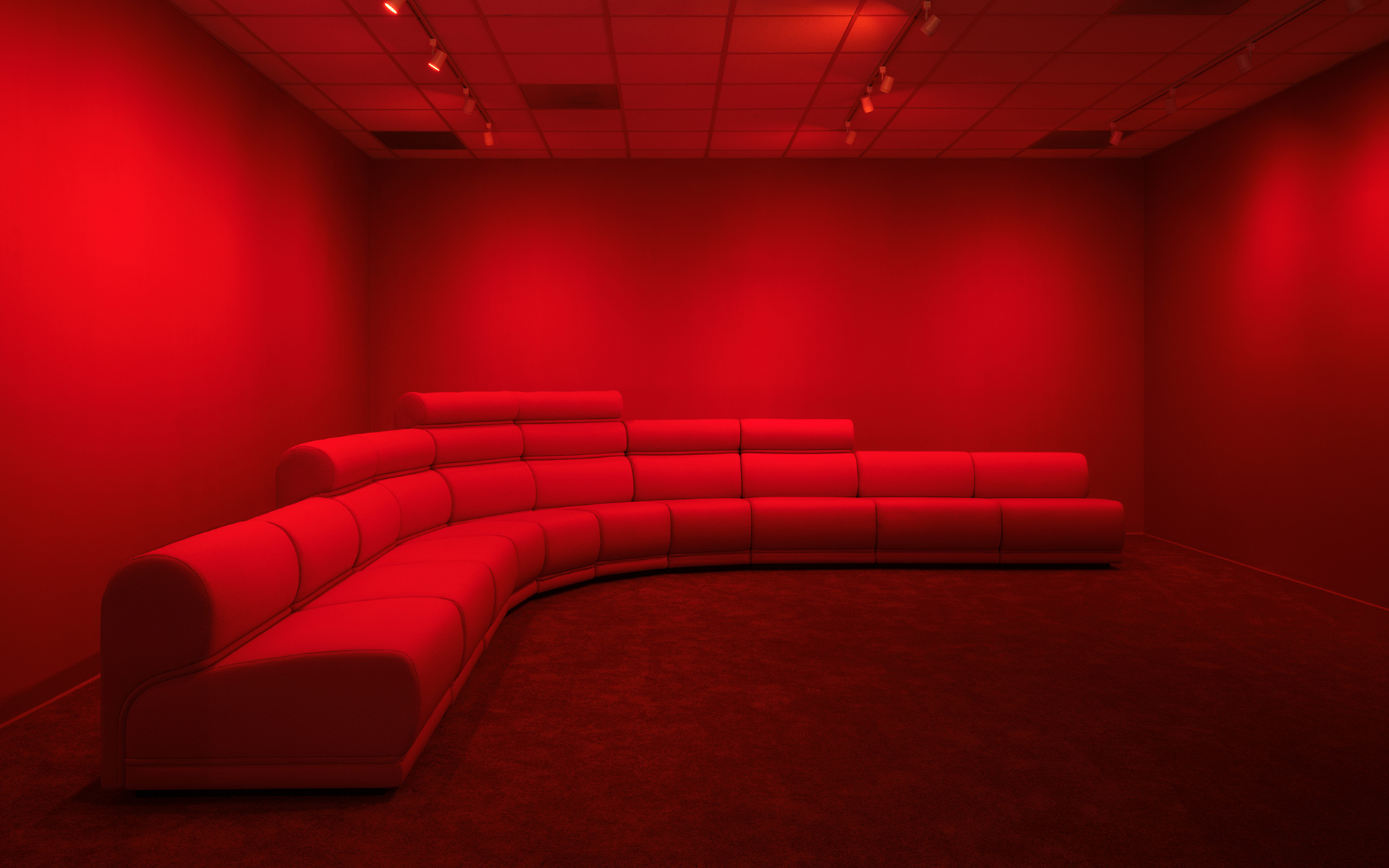

Inside Design.Space, a Reimagined Retail Experience by Basic.Space
The online marketplace and owner of Design Miami launches a two-day curated shopping event in Los Angeles tailored to the tastes of tomorrow’s collectors
For nearly two decades, Design Miami hewed to a tried-and-true formula: bring the world’s most distinguished galleries and designer presentations together under one roof twice a year, at its well-attended editions on the hedonistic shores of South Beach and the cavernous halls of MCH Messe Basel. Its first major departure from that formula, held in Paris during Paris+ par Art Basel in late 2023, eschewed a traditional fair-like format in favor of presenting collectible design in situ at L’hôtel de Maisons, a landmark hôtel particulier in Saint-German-des-Prés that was once home to Karl Lagerfeld. Its inaugural edition in Los Angeles the following spring also flipped the script, presenting a compelling mix of West Coast–inspired works in an illustrious Holmby Hills estate by the esteemed architect Paul Revere Williams.
“People loved being in a beautiful home,” says Jesse Lee, the founder of online marketplace Basic.Space, which acquired Design Miami in October 2023. “What didn’t happen as much were actual sales. Los Angeles is a much different market.” So in lieu of a second edition, Lee and Basic.Space tweaked the formula again, this time toward encouraging new design discoveries in a setting that more closely resembles traditional retail. “We wanted to create something authentic to how it feels to shop in the city.”
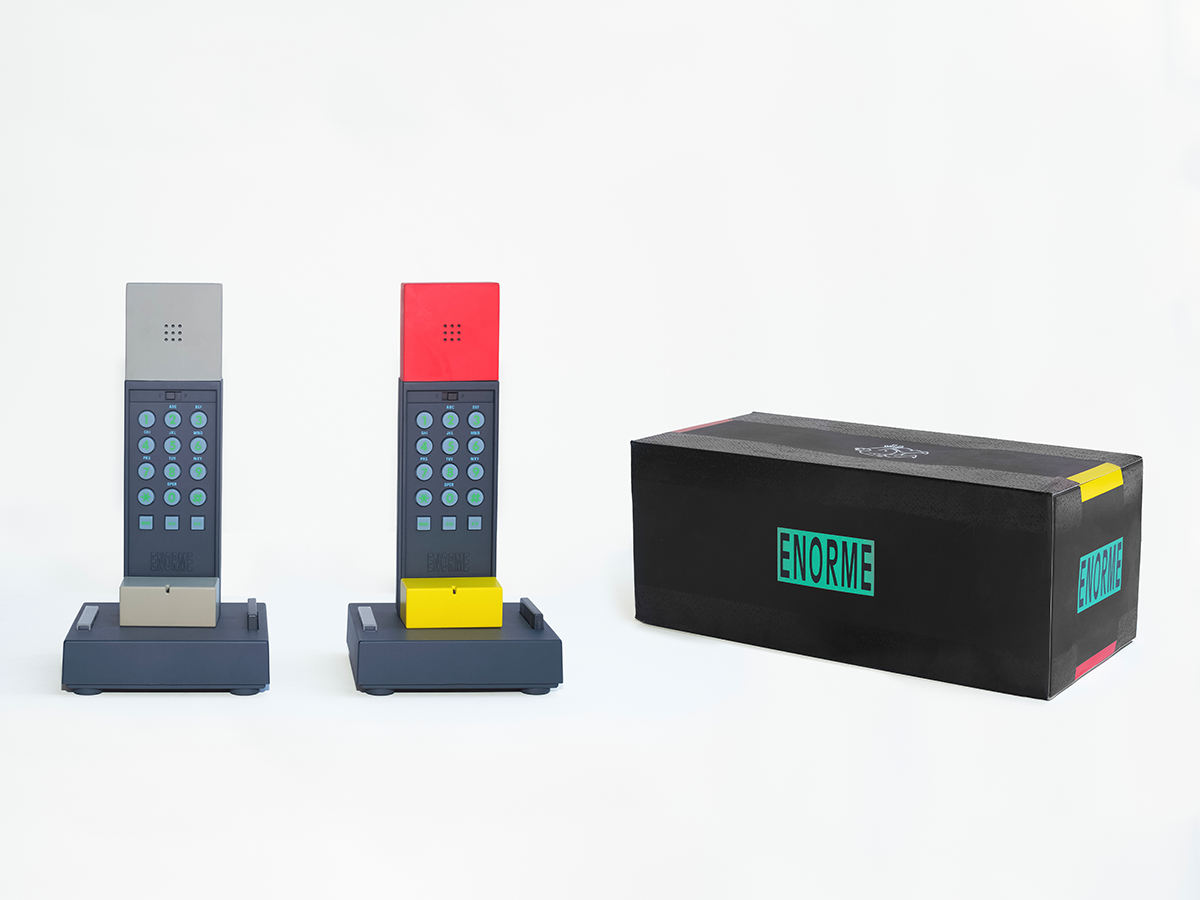
Enorme Telephone (1986) by Ettore Sottsass and David Kelley. Photo: Maya Fuhr
That heralds the launch of Design.Space, an invitation-only design marketplace taking over the Pacific Design Center in West Hollywood through Sunday, March 30. It showcases a curated selection of archival and contemporary pieces from the same caliber of artists, designers, galleries, and brands that have long distinguished Design Miami, but in an immersive setting across the hub’s indoor and outdoor spaces. Lee describes the approach as an “IRL to URL shopping experience” and likens the setting to a department store. “The inspiration comes from how Barneys or Colette used to feel ten years ago—institutions where you spend a whole Saturday exploring different floors, discovering and buying things,” he explains. “While we love the convenience of online shopping, people still want in-person, real-life discovery moments.”
Design.Space offers many. Among the highlights is a limited-edition version of Pierre Paulin’s sumptuous Chirac Sofa, which Parley for the Oceans upholstered in repurposed polypropylene ropes from Christo and Jeanne-Claude’s historic 2021 wrapping of L’Arc de Triomphe. Sabine Marcelis joined forces with BD Barcelona to debut a lavender-hued edition of a slick aluminum chair originally made for Amsterdam’s Stedelijk Museum. Max Lamb debuted a sea of blood-red armchairs as an evolution of his groundbreaking 2020 performance in material exploration when he transformed five polystyrene slabs into 60 unique furnishings over the course of three days. There’s also a trove of Enorme telephones, an icon of postmodernism designed by Memphis Milano founder Ettore Sottsass, IDEO founder David Kelley, and investor Jean Pigozzi. Only 1,000 were ever produced, but a time capsule containing 500 untouched phones was recently retrieved from a time capsule unearthed in Stanford, California.
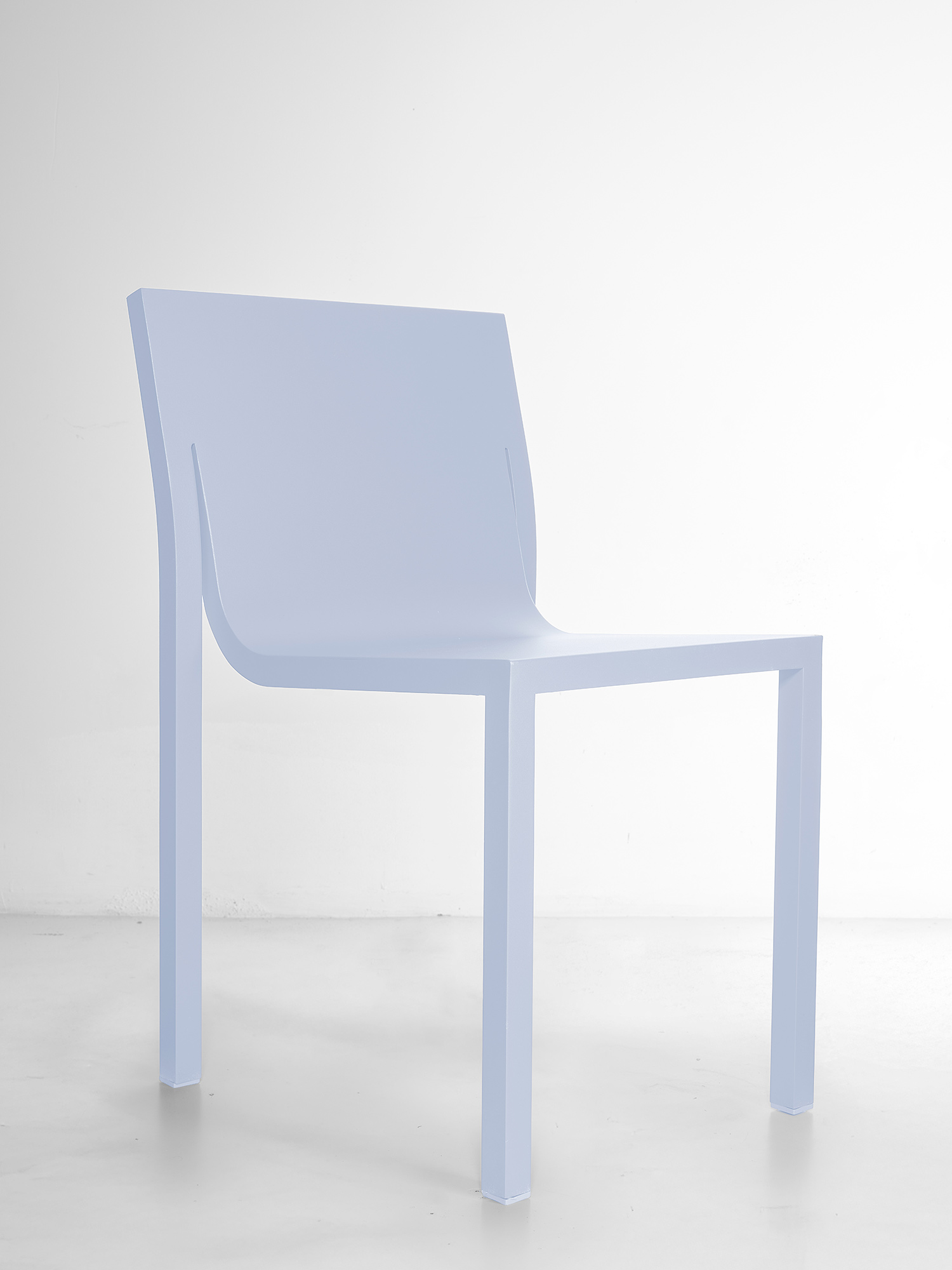
Stedelijk Chair by Sabine Marcelis for BD Barcelona. Photo: Courtesy of Design.Space
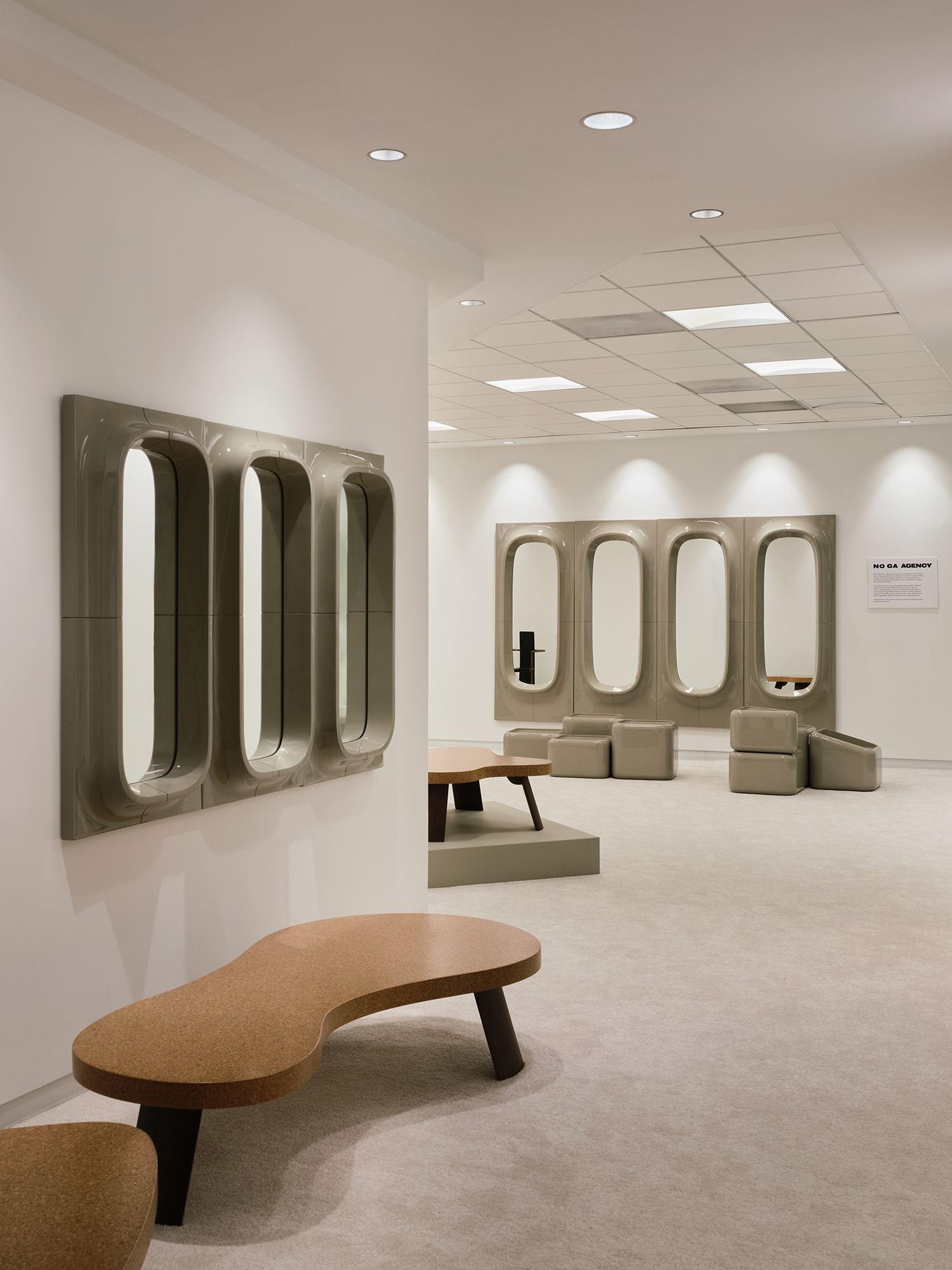
NO GA and Willo Perron at Design.Space. Photo: Elizabeth Carababas
Perhaps the biggest highlight is the Sainte-Marie Gas Station, a modular structure designed by Jean Prouvé for the oil company Total in 1969. Envisioned as a radial plan anchored by a central bent steel barrel, the lightweight structure illustrated Prouvé’s ingenuity and ongoing research into modular, load-bearing systems that prioritized adaptability. Design.Space marks the first time the structure has been displayed in the United States, and it required the Paris design dealer François Laffanour to ship it across the Atlantic. Presented alongside a curation of vintage cars and outfitted with classic Prouvé furnishings, the structure becomes a makeshift time capsule back to the era. “Hopefully,” Lee says, “it will be sold as a guest house for a collector that really loves Prouvé.”
Every object at Design.Space is available for easy purchase via on-site salespeople or from the Basic.Space app. The compelling curation and frictionless customer journey is meant to attract younger millennials and older Gen Z-ers who’ve invested in fashion but are keen on sparking a deeper, more profound interest in collectible design. “How you contextualize your personal taste and curation is evolving,” Lee tells Galerie. “Design is now at the forefront of what everyone’s excited about.” He points toward the rise of remote work as galvanizing this movement, noting how consumers have become increasingly fussy about their furniture if it surrounds them all day. He tailored the curation specifically to attract this group of budding collectors: “it’s a mix of discovery and then hopefully purchasing your first significant design piece.”
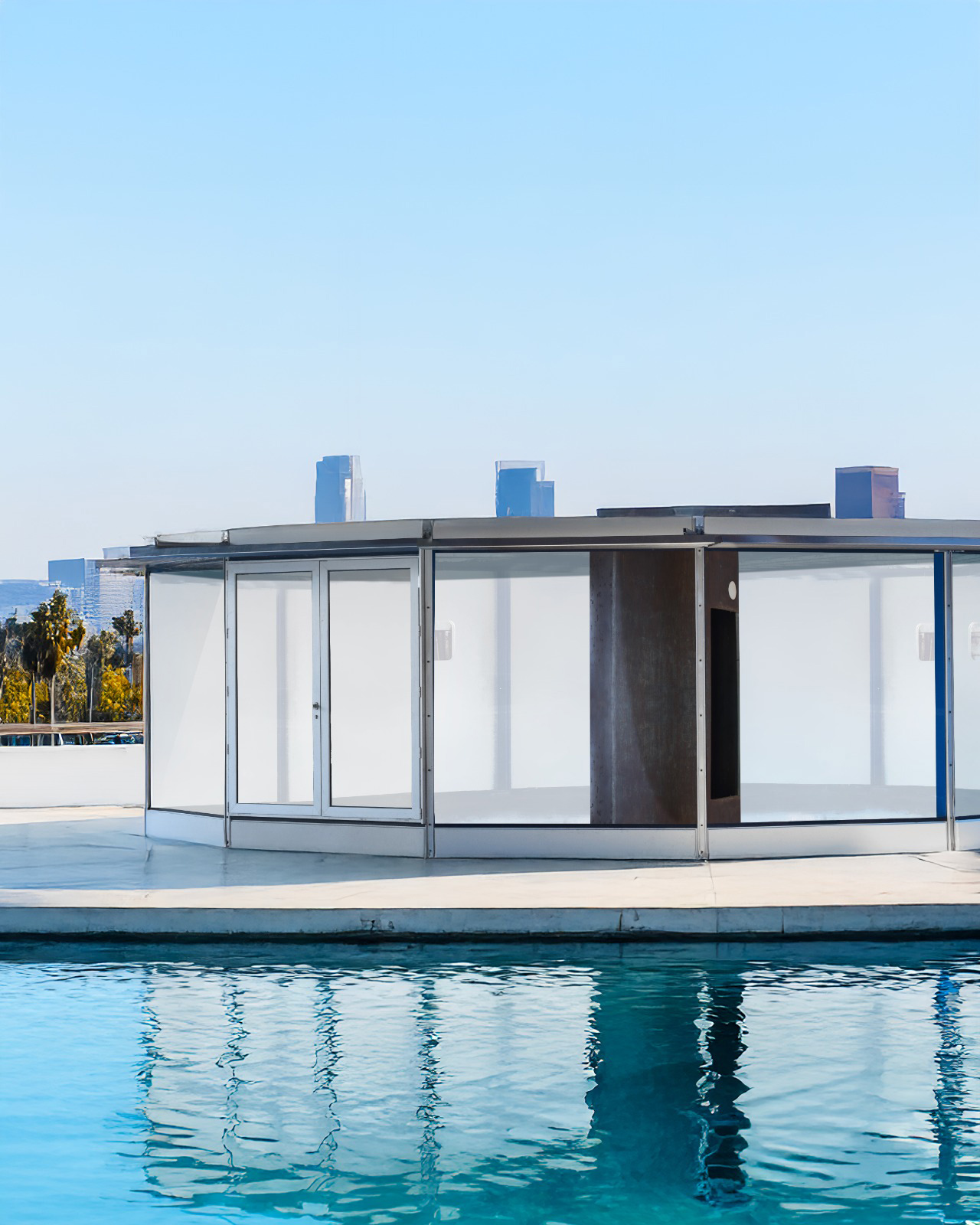
Sainte-Marie Gas Station (1969) by Jean Prouvé. Photo: Courtesy of Laffanour Galerie Downtown
Design.Space is only on view for two days—an intentionally condensed runtime that Lee hopes will attract curious consumers with mutual interests. He’s banking on this community as Basic.Space transitions from a publicly available marketplace to a membership-based platform, which will offer members benefits and personalized services such as preview access to coveted drops, private art buying and selling opportunities, and VIP entry to all global Design Miami events. And he intends to toy with Design.Space’s concept even further. “The natural progression is to launch in different cities,” he explains. “We may even look into doing something more permanent or semi-permanent.”
Design.Space will be on view at the Pacific Design Center (8687 Melrose Ave, West Hollywood, CA) until Sunday, March 30.
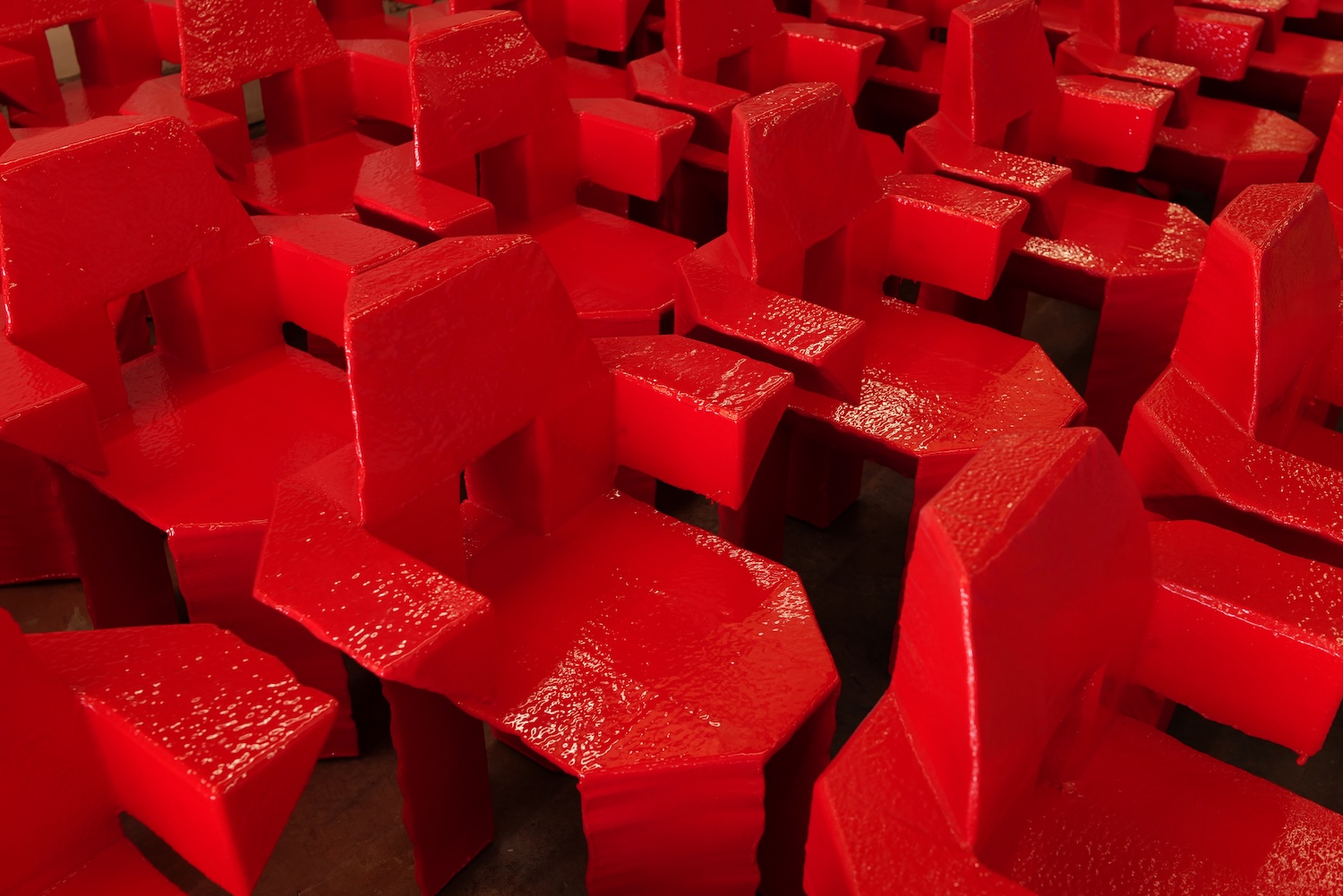
50 Armchairs (2025) by Max Lamb. Photo: Courtesy of Salon 94 Design

